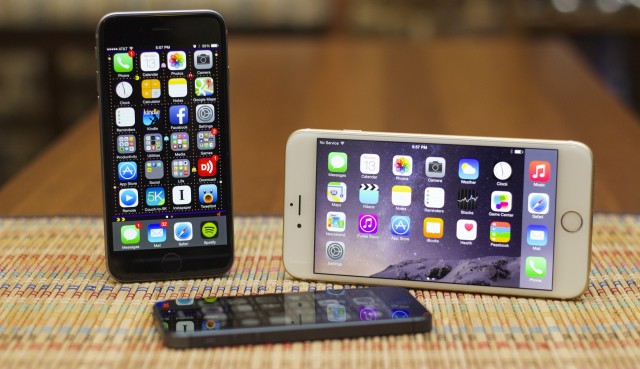
Apple has just released the data for the fourth quarter of its fiscal 2014, and the story is the same as it's been for most of the year: iPhone sales are up, iPad sales are down-to-flat, Mac sales are up a little and continue to beat the growth rate of the wider PC market, and iPods have fallen off a cliff. Apple's fourth quarter runs from the beginning of July to the end of September, so it includes the new iPhone launch but not the new iPads and Macs announced last week.
First, some hard numbers: Apple made a record $42.1 billion in revenue and $8.5 billion in profit, and had a gross margin of 38 percent. The revenue numbers beat Apple's guidance from last quarter, which predicted revenue between $37 and $40 billion and a margin between 37 and 38 percent. Last year, the company posted $37.5 billion in revenue and profit of $7.5 billion with gross margins of 37 percent. For the first quarter of fiscal 2015—usually Apple's largest by far, since it encompasses the holidays and several new product launches—the company is predicting between $63.5 and $66.5 billion of revenue and 37.5 to 38.5 precent margins.
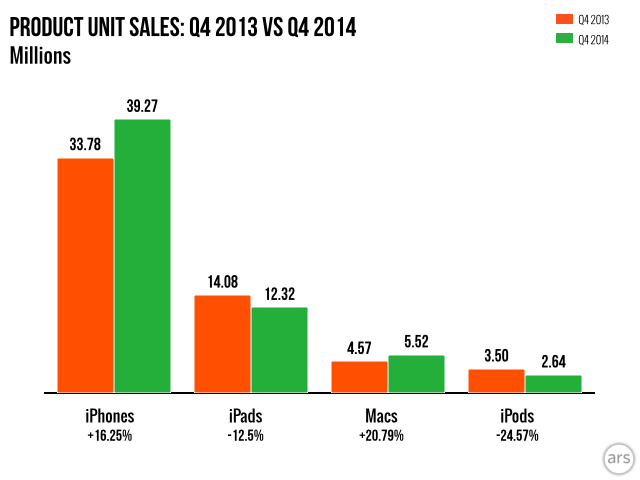
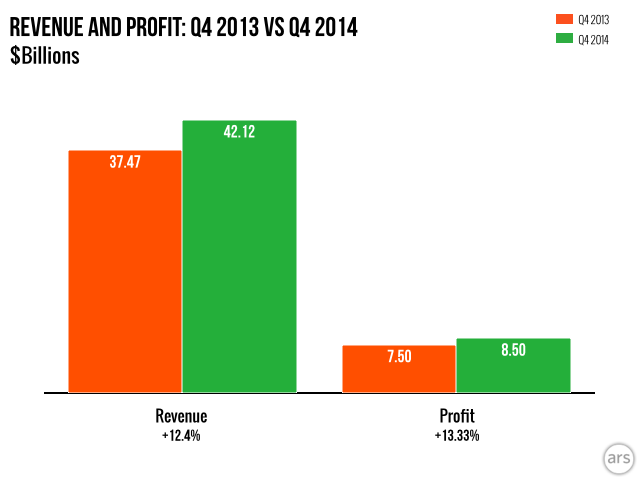
The iPhone continues to be Apple's biggest product both in terms of unit sales and of revenue. The first weeks of iPhone 6 and 6 Plus availability helped Apple sell 39.27 million iPhones, up from 33.78 million last year, and the iPhone lineup accounts for 56.2 percent of the company's revenue.
Though the iPhone news is good, the iPad continues its year-over-year decline. Apple sold 12.32 million of the tablets this quarter compared to 14.08 million a year ago, a drop of 12.5 percent. The tablet is still Apple's second-largest product by units sold—the Mac beat it out in terms of revenue for the first time in years, though iPad margins could still be higher—but three straight quarters of sales decline is worrisome for Apple. The introduction of the iPad Air 2 and the iPad Mini 3 (and the new, lower prices for the original iPad Air and iPad Mini 2) may help boost these numbers next quarter, and Apple CEO Tim Cook has said that he expects its partnership with IBM to increase sales in large businesses.
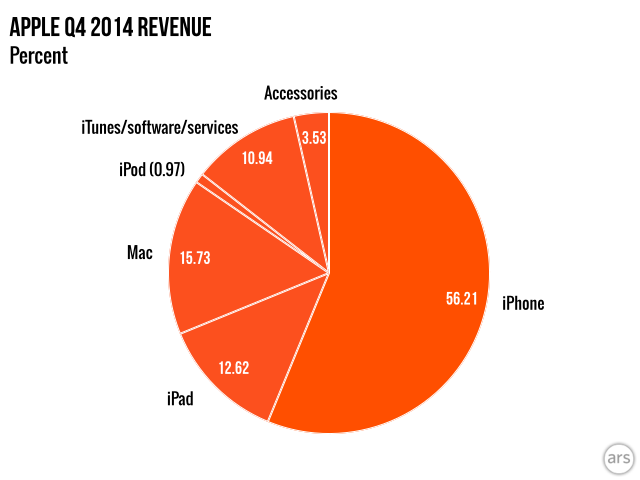
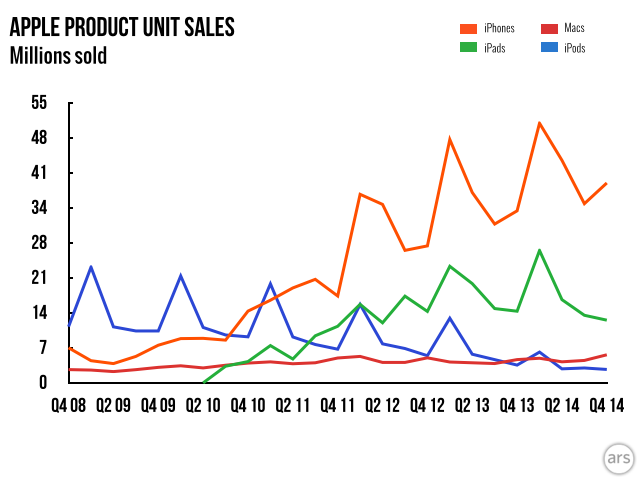
The news doesn't look great for iPads, but Macs continue to sell in record numbers despite Intel's Broadwell delay holding up major refreshes to the lineup. Apple sold 5.52 million Macs this quarter, up from 4.57 million last year. This increase is likely attributable to some price cuts across the lineup, including the cheaper MacBook Airs and the cheaper-but-less-powerful low-end iMac. iPods continue their precipitous decline, falling from 3.5 million units last year to just 2.64 million this year. The lineup hasn't been updated since 2012, unless you consider the death of the iPod Classic to be an update.
Update: Apple has announced that it will be changing up how it divides up its product lines beginning in Q1 of 2015. Currently, Apple divides the iPhone, iPad, Mac, iPod, iTunes/Software/Services, and Accessories into separate line items in its reports. Next quarter, the iPod will be folded into a line called Other Products with Beats headphones, Apple TV, and other accessories sold through Apple's stores. When the Apple Watch ships, it will be lumped in with Other Products as well. Apple Pay revenue will be added to iTunes/Software/Services along with iTunes and App Store revenue. iPhones, iPads, and Macs will each remain separate categories.
Apple says that it will re-release its old earnings reports to be consistent with the new divisions when the Q1 2015 results are released. We'll update our charts accordingly.
Update 2: When asked about the downward trend in iPad sales, Tim Cook didn't answer directly. Instead, he encouraged investors to look at the first four years of iPad and compare it to the first four years of its other products, including iPhones. Total sales are still higher, and officially the company regards the iPad's drop as a "speed bump" and nothing to be worried about in the long term. Apple emphasized this lifetime sales figure at its iPad announcement event last week, too.
Cook also believes that there's room for growth in the enterprise, and that the tablet market isn't yet saturated. He said that the company's data showed that 50 to 70 percent of iPad sales in the top six countries were to first-time iPad buyers.
reader comments
98